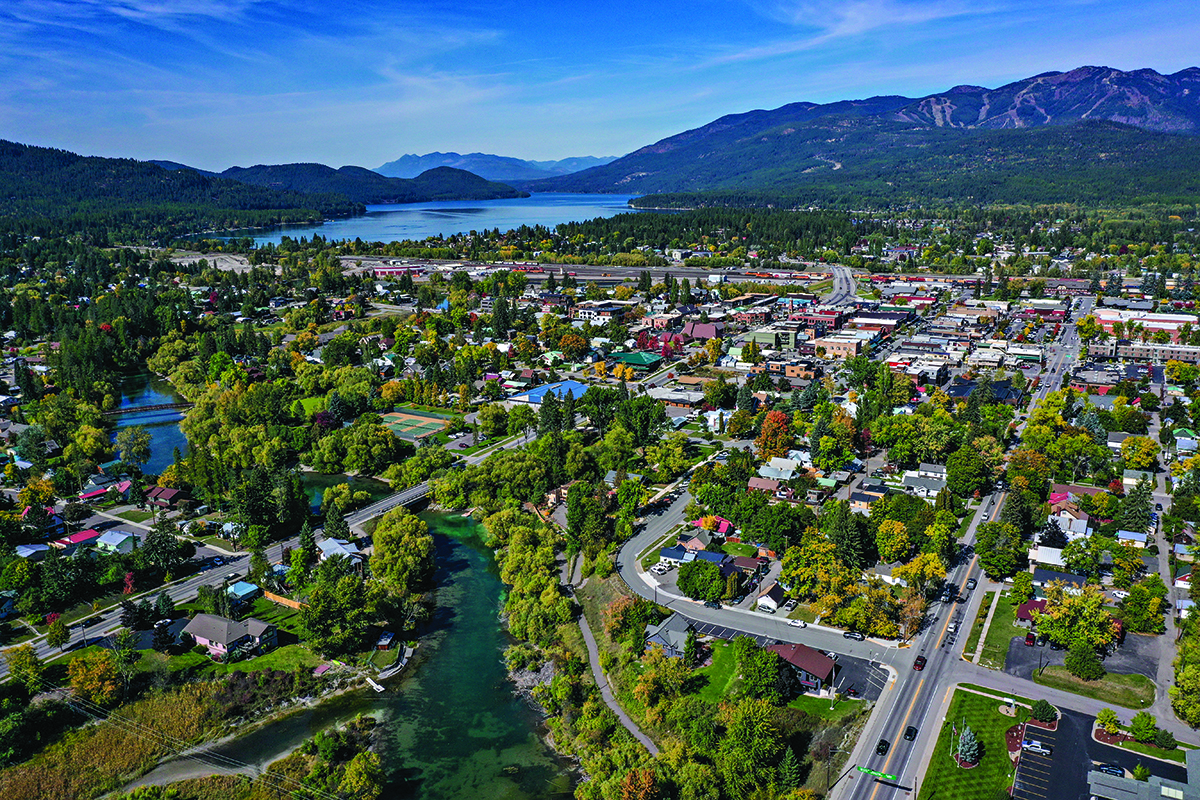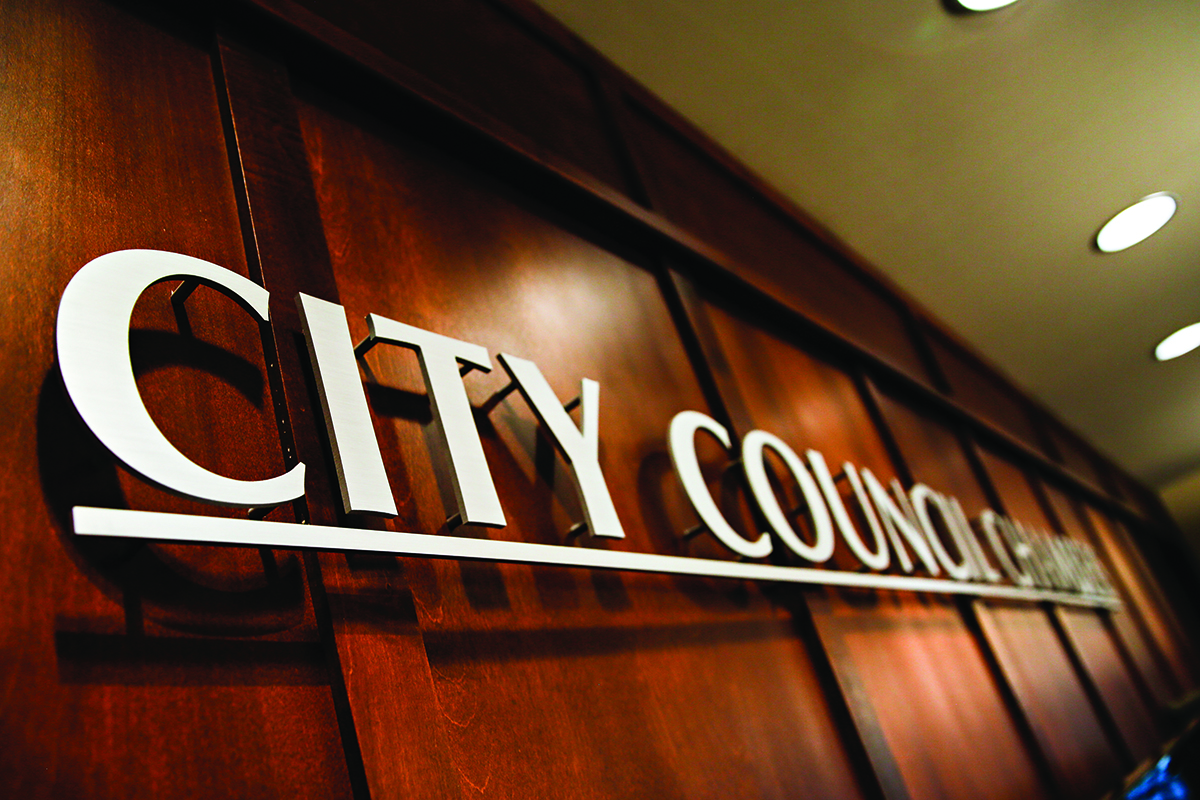Growth and Affordability Dominate Whitefish Council Candidate Forum
A crowded field is vying for three city council positions, including two incumbents and six newcomers who will appear on the Nov. 2 ballot
By Tristan Scott
Fresh off a summer of soul-crushing visitation that tested its infrastructure and strained services in both the public and private sectors, Whitefish is coping with the consequences of its own popularity.
Current city leaders are working to frame out a future of sustainable growth and tackle a raft of challenges related to affordability as year-round residents struggle to reconcile an allegiance to their community with the growing recognition that, as one of the most popular travel destinations in the intermountain West, changes are afoot.
The pandemic catalyzed decades of steady growth and tourism promotion, accelerating visitation to unparalleled levels, while a groundswell of new residents has expanded the population and caused housing prices to balloon. Meanwhile, members of the local workforce struggle to find viable housing accommodations as homeownership becomes increasingly out of reach.
And yet Whitefish’s quaint downtown core remains intact, its resort taxes are hard at work and its open spaces are expanding, with new acres of forested parcels contributing to the community’s outdoor amenities and its ethos of conservation and recreation.
With another municipal election on the horizon, a field of candidates has taken shape to help determine how and in what directions this community grows, and on Nov. 2 voters in Whitefish will have the opportunity to elect new leaders to their local government.
The batch of new and returning candidates for seats on the Whitefish City Council introduced themselves to voters Oct. 14 at an online candidate forum hosted by the Whitefish Pilot. With two incumbents and six newcomers vying for three council seats, the results of the general election will shift the composition of the council, although to what degree remains to be seen.
Whitefish council incumbents Ben Davis and Andy Feury are both in the running to retain their seats, while sitting council member Ryan Hennen did not file for another term, leaving his seat open. Six newcomers are also in the running for those three seats, including Phil Boland, Vincent Dell’Omo, Judy Hessellund, Terry K. Petersen, Kristen Riter, and Giuseppe “GMan” Caltabiano.
Mark E. Owens has withdrawn from the race, although his name will still appear on the ballot. Feury, a longtime Whitefish city councilor and the former mayor, was unable to attend the candidate forum on Oct. 14 but is actively campaigning.
The evening online forum opened with brief introductions from the candidates followed by six questions covering a range of issues, from growth and affordability to transportation, infrastructure and the city’s climate action plan.
According to Boland, who moved to Whitefish from California 2 1/2 years ago in order to be closer to family, if elected he would strive to help solve the shortage of affordable workforce housing in Whitefish, which he described as “staggering,” by supporting the approval of more accessory-dwelling units while exploring options to build “portable dormitories” to accommodate workers in the service and hospitality industry. He also said the city’s zoning regulations need to be modified, a theme that several other newcomers seized on, and Whitefish needs to revise its short-term rental criteria.

“We all remember this past summer and how it impacted us,” Boland said. “Let’s find solutions that help avoid that in the future without gouging our employees with rents they cannot afford.”
Davis, one of the incumbent candidates, said his extensive volunteer work with the city has largely focused on solving the housing crisis, including his past role chairing the Whitefish Housing Authority Board, when he helped secure $7 million for an affordable housing project on Edgewood Place, and his current role chairing the Whitefish Strategic Housing Plan Steering Committee. A custom homebuilder by trade, Davis moved to Whitefish a decade ago to start a business and raise a family, and immediately began seeking out ways to give back to the community.
“I do believe this is a pivotal moment for Whitefish and one of the reasons that we have such a small community feel in Whitefish is because of smart growth planning,” Davis said, emphasizing his commitment to setting and refining guardrails for responsible real estate development, encouraging builders to innovate within those boundaries. “I’m a very strong believer in the community expressing our vision for how our town should look and how it should grow.”
Giuseppe “GMan” Caltabiano said he’s called Whitefish home for more than 16 years, settling here after a career with the Italian Navy and working as a partner and president of NXGEN International. Compelled to run for city council out of a desire to give back, Caltabiano said under his leadership he’d like to review the stringent zoning, architectural standards and setback requirements he says are a deterrent for builders, and which contribute to the high costs and diminished supply of housing. Instead, he proposed a market-based solution that doesn’t infringe on development with uncompromising standards.
“Our city council has literally zoned local housing out of the city, and now we are suffering the results,” he said, explaining that he favors a housing market free from excessive regulation.
Kristen Riter also said the city needs to “get out of its own way” and identify zones that encourage infill development near the core of the city so that developers don’t chafe under the constraints of current zoning regulations. She also detailed steps for restructuring impact fees on developments that could help address the ripple effects of large-scale developments.
“We don’t have an impact fee structure to capture the true impact of these projects,” said Riter, adding that her background in business, auditing and quality control makes her a solid candidate to help take on such an overhaul.
Petersen, who moved to Whitefish by way of Havre but spent much of her life in California, emphasized her commitment to investing in infrastructure and public safety, pegging access to emergency services above the city’s housing shortage.
“Whitefish’s situation reminds me of what happened to places like Carmel or Santa Cruz in California. We had a summer home in Santa Cruz and then the hippies moved in because they accommodated affordable housing. So the people left and now the affordable housing looks like project housing,” Petersen said.
Speaking during a break from his honeymoon in Banff, Alberta, a recently married Dell’Omo said he moved to Whitefish four years ago after visiting numerous times. He met his wife here and plans on staying in Whitefish for the long haul, but sees the need for “more modest growth” to accommodate a younger generation of new residents struggling to gain footing in a town where housing remains out of reach for many.
“As a person who has worked in the service industry I know how difficult it can be to secure affordable housing,” he said. “A lot has changed in the past few months and … Whitefish is going to continue growing. But it needs to happen in a very responsible way. This community was built by the locals and we shouldn’t be pushed out.”
Hessellund, a real estate broker, said she was reluctant to run for an elected position, but did so after friends and community members encouraged her. She said the city’s growth policy provides “a good foundation” for Whitefish, but needs updating. She also said she doesn’t believe the city needs a climate action plan to mitigate its contribution to human-induced global warming, which she dismissed, saying “weather is cyclical. Leave it alone.”
“I sometimes think the good, bad and the ugly about Whitefish, but it has so much to offer,” she said.